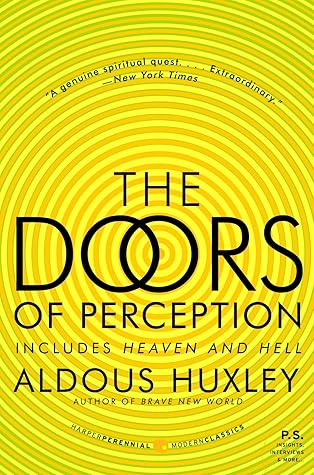More on this book
Community
Kindle Notes & Highlights
And yet, in spite of this devaluation of artificial light, theatrical spectacle still retains its old compelling magic.
The past is not something fixed and unalterable. Its facts are rediscovered by every succeeding generation, its values reassessed, its meanings redefined in the context of present tastes and preoccupations. Out
The aim of the classical artist, in whatever period he may happen to live, is to impart order to the chaos of experience, to present a comprehensible, rational picture of reality, in which all the parts are clearly seen and coherently related, so that the beholder knows (or, to be more accurate, imagines that he knows) precisely what’s what.
Nature at the middle distance is familiar—so familiar that we are deluded into believing that we really know what it is all about. Seen very close at hand, or at a great distance, or from an odd angle, it seems disquietingly strange, wonderful beyond all comprehension.
The close-up landscapes of China and Japan are so many illustrations of the theme that samsara and nirvana are one, that the Absolute is manifest in every appearance.
Like the wraiths in Sheol and in Homer’s Hades, these mentally disturbed persons have lost touch with matter, language and their fellow beings. They have no purchase on life and are condemned to ineffectiveness, solitude and a silence broken only by the senseless squeak and gibber of ghosts.
Point Counter Point (1928),
“One of Aldous’s major preoccupations was how to achieve self-transcendence while yet remaining a committed social being—how to escape from the prison bars of self and the pressures of here and now into realms of pure goodness and pure enjoyment.”
None of our motives is unmixed, none of our actions can be traced back to a single source and, in any group we care to study, behavior patterns that are observably similar may be the result of many constellations of dissimilar causes.
The drunken consciousness is one bit of the mystic consciousness, and our total opinion of it must find its place in our opinion of that larger whole.
Every fully developed religion exists simultaneously on several different levels. It exists as a set of abstract concepts about the world and its governance. It exists as a set of rites and sacraments, as a traditional method for manipulating the symbols, by means of which beliefs about the cosmic order are expressed. It exists as the feelings of love, fear and devotion evoked by this manipulation of symbols. And
We love ourselves to the point of idolatry; but we also intensely dislike ourselves—we find ourselves unutterably boring.
It is to this urge that we owe mystical theology, spiritual exercises and yoga—to this, too, that we owe alcoholism and drug addiction.
In the present case, millions of patients who had no real need of the tranquilizers have been given the pills by their doctors and have learned to resort to them in every predicament, however triflingly uncomfortable. This is very bad medicine and, from the pill taker’s point of view, dubious morality and poor sense.
But for healthy people to resort to a chemical mind changer every time they feel annoyed or anxious or tense is neither sensible nor right.
In mental hospitals it has been found that chemical restraint is far more effective than strait jackets or psychiatry.
The pursuit of happiness is one of the traditional rights of man; unfortunately, the achievement of happiness may turn out to be incompatible with another of man’s rights—namely, liberty.
all the standard mortifications—fasting, voluntary sleeplessness and self-torture—inflicted upon themselves by the ascetics of every religion for the purpose of acquiring merit, are also, like the mind-changing drugs, powerful devices for altering the chemistry of the body in general and the nervous system in particular.
change in the quality of consciousness.
What was once the spiritual privilege of the few will be made available to the many.
To men and women who have had direct experience of self-transcendence into the mind’s Other World of vision and union with the nature of things, a religion of mere symbols is not likely to be very satisfying. The perusal of a page from even the most beautifully written cookbook is no substitute for the eating of dinner. We are exhorted to “taste and see that the Lord is good.”


